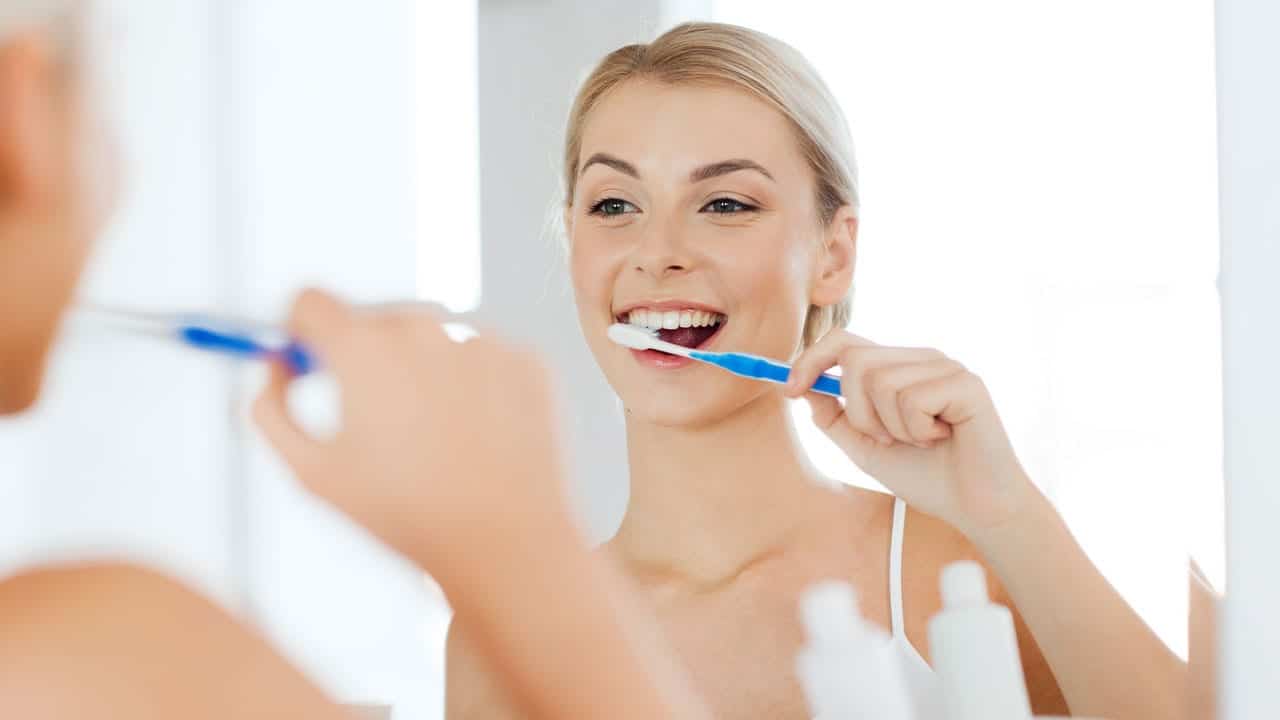What's the right way to brush your teeth?
The right way to brush your teeth is crucial for maintaining good oral hygiene. Here are the steps to brush your teeth effectively.

What's the right way to brush your teeth?
Brushing your teeth is an essential part of maintaining good oral hygiene. Here are the steps to brush your teeth effectively:
Gather your supplies
You will need a toothbrush, toothpaste, and a cup for rinsing.
Choose the right toothbrush
Use a soft-bristle toothbrush. Hard bristles can be too abrasive and may damage your gums and tooth enamel.
Apply toothpaste
Squeeze a pea-sized amount of toothpaste onto your toothbrush. You don't need a large amount of toothpaste to effectively clean your teeth.
Wet your toothbrush
Run your toothbrush under water to moisten the bristles.
Position your toothbrush
Hold the toothbrush at a 45-degree angle to your gums. This angle allows the bristles to reach both your teeth and the gumline.
Brush gently
Use gentle circular or back-and-forth motions to clean the outer surfaces of your teeth. Be thorough and make sure to brush every tooth. Pay special attention to the molars at the back of your mouth.
Clean the inner surfaces
Tilt your toothbrush vertically and brush the inner surfaces of your teeth using a gentle up-and-down motion.
Brush your tongue
Many toothbrushes have a textured surface on the back specifically for cleaning the tongue. If not, you can use your toothbrush to clean your tongue, which can help freshen your breath.
Don't forget your gums
Gently brush your gums and the gumline to remove plaque and food particles.
Rinse your mouth
Use a cup of water to rinse your mouth thoroughly, swishing the water around to remove any remaining toothpaste and debris.
Spit, don't rinse
After rinsing, spit out the toothpaste instead of rinsing your mouth with more water. This allows a thin layer of fluoride from the toothpaste to remain on your teeth for added protection.
Clean your toothbrush
Rinse your toothbrush thoroughly and store it in an upright position to allow it to air dry. Avoid covering it, as a moist environment can encourage bacteria growth.
Replace your toothbrush
Replace your toothbrush or toothbrush head every 3-4 months, or sooner if the bristles are frayed.
Brush at least twice a day
Ideally, you should brush your teeth at least twice a day, in the morning and before bed. You can also brush after meals if possible, but be sure to wait 30 minutes if you've consumed acidic foods or beverages to avoid damaging your enamel.
Floss daily
In addition to brushing, flossing daily is important to clean between your teeth and remove debris and plaque that your toothbrush might miss.
Visit your dentist
Regular dental check-ups are crucial for maintaining good oral health. Your dentist can identify any issues and provide professional cleaning and advice.
Also read: The Most Common Yoga Injuries and How to Avoid Them
Remember that proper brushing technique, along with flossing and regular dental check-ups, is essential for preventing tooth decay, gum disease, and maintaining a healthy smile.














